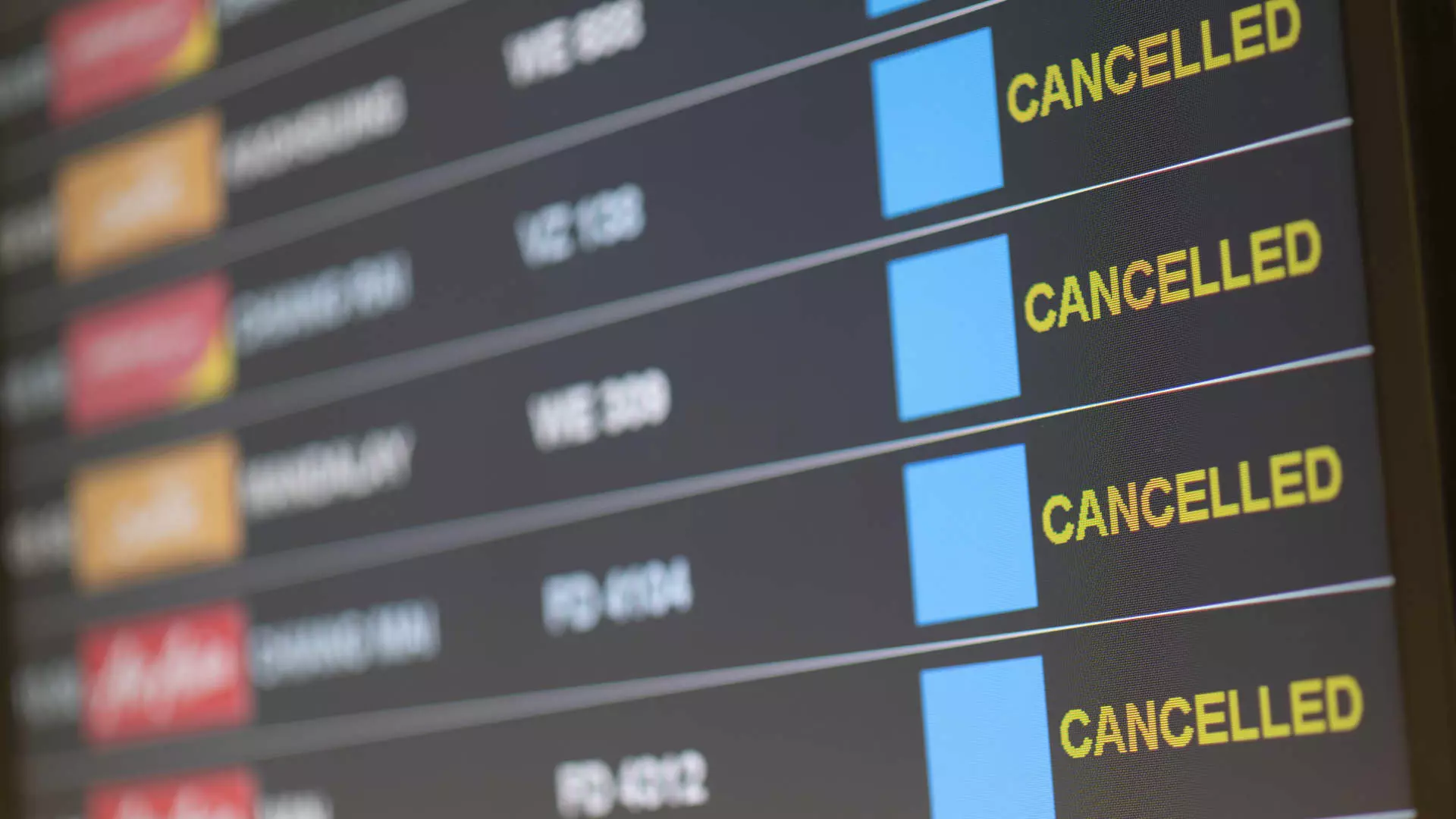It’s no secret that the summer travel season can bring a host of challenges, with flight delays and cancellations being a common issue for many travelers. However, when it comes to seeking reimbursement for these disruptions, the road ahead may be far from straightforward. In the United States, airlines are not generally obligated to provide compensation for delays or cancellations, according to experts like Eric Napoli, the chief legal officer at AirHelp. This lack of obligation puts travelers at the mercy of specific airline policies and the root cause of the disruption. With the summer months typically seeing a surge in flight disruptions due to factors like bad weather and increased air traffic, passengers may find themselves navigating a complex landscape when seeking compensation.
For passengers facing delays or cancellations, one glimmer of hope comes in the form of the U.S. Department of Transportation’s guidelines. Carriers are required to refund the ticket price and fees if a flight is canceled or significantly altered, irrespective of the reason. This duty holds true even for passengers holding non-refundable tickets. However, the definition of what constitutes a “significant” change remains somewhat vague, with factors like the duration of the delay and specific circumstances influencing the decision. To provide greater clarity and accountability, a new rule issued by the Biden administration will mandate airlines to promptly pay refunds starting October 28, along with defining a significant change as a delay of three hours for domestic flights and six hours for international flights.
When it comes to compensation policies for delays and cancellations, airlines have differing approaches that passengers should be aware of. While the Transportation Department requires airlines to adhere to specific promises during disruptions lasting longer than three hours, these policies may only apply to delays within the airline’s control. For instance, most airlines offer free rebooking on the same carrier and a complimentary meal for waits exceeding three hours, with some providing hotel accommodations for overnight delays. However, cash compensation is generally not offered for delays of three hours or more. It’s crucial for passengers to understand that these policies may not cover disruptions caused by external factors like inclement weather.
Passengers traveling to and from Europe may find themselves with more rights under EU law, allowing for greater compensation in certain situations. To minimize the risk of flight disruptions and better manage delays or cancellations, experts recommend several strategies. Booking the first flight of the day can reduce the likelihood of delays, as flights departing after 9 a.m. are statistically more prone to disruptions. Avoiding connecting flights, if possible, and allowing ample layover time can also help mitigate the impact of potential delays. Building in a buffer day at your destination, choosing less busy travel days, packing wisely with essentials, and multitasking while waiting can all contribute to a smoother travel experience in the face of unexpected disruptions.
Navigating the complexities of airline compensation policies and dealing with flight delays and cancellations can be a daunting task for travelers. By understanding the obligations of airlines, the rights of consumers, and implementing proactive strategies, passengers can better prepare themselves to handle disruptions during the summer travel season and beyond.

